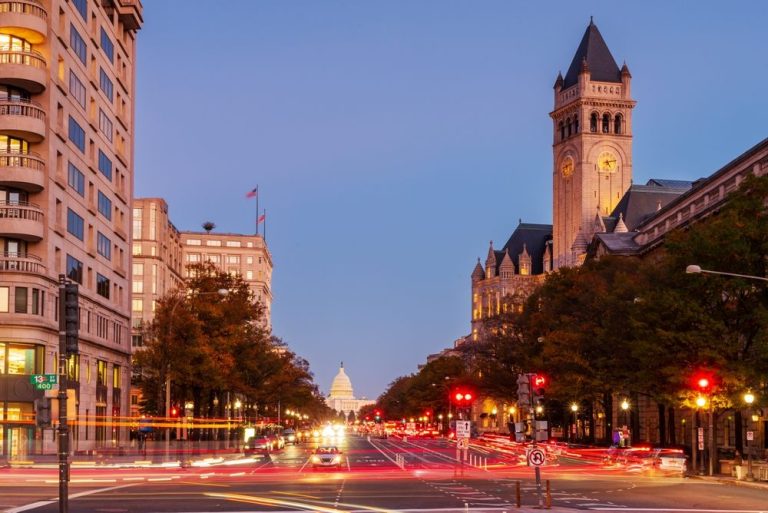In the October 2022 edition of The ICR D.C. Insider, we share our insights and analysis about developments in Washington that could have an immediate and long-term impact on your business.
The SEC
- Technology Failure Leads To Extended Comment Periods – As the result of a long-running failure of the Commission’s online comment portal, the SEC has reopened the public comment periods for 11 rulemaking releases and one request for comment. The proposals being reopened include the SPAC rule, the climate disclosure rule, a proposal to force investors to quickly reveal their security-based swap positions and a sweeping plan to bolster oversight of the fees and business practices of hedge funds and private-equity firms. The majority of the affected comments were submitted in August 2022; however, the technological error is known to have occurred as early as June 2021.
- Advance Of The Regulatory Agenda – In his prepared testimony before the Senate Banking Committee, Chair Gensler articulated his proactive agenda for regulation across the Commission’s remit, including market structure, the bond market, disclosures, and China – among others. His comments on crypto are noted below.
- Stricter Accounting Standards Contemplated – The SEC’s Investor Advisory Committee – a group of investors, academics and financial advisers – has recommended setting up another advisory committee (the Advisory Committee on Accounting Modernization) to ensure the Financial Accounting Standards Board (FASB) remains politically independent. The proposal comes in the wake of a new corporate minimum tax, which will increase levies on large businesses that pay less than 15% tax on their book or financial-statement income.
- House Republicans Turn Up The Heat On The SEC & CFPB – Rep. Patrick McHenry (R-N.C.) – the top Republican on the House Financial Services Committee and its likely next chair should the GOP win the House in November – teamed up with Rep. James Comer (R-Ky.), the top Republican on the House Oversight Committee, on letters to CFPB Director Chopra and Gensler pressing them to defend the legality of a slew of measures the regulators have taken. The letters follow a Supreme Court decision this summer setting a precedent that a federal agency needs explicit congressional approval for certain major actions. Rep. Kay Granger (R-Texas), the top GOP member of the Appropriations Committee, also signed the letter to Gensler.
- Climate Change Disclosure Rule Proposal Impact On Smaller Companies – The proposed rule would not require public companies to ask small private suppliers to report on their carbon footprints Gensler said in response to questioning by Sen. John Tester (D-Mont.) at the Senate Banking Committee hearing. Gensler said public companies can estimate the carbon footprint of small suppliers and still comply with the proposed rule.
CFPB
- More Actions On The Horizon Despite Republican Opposition – CFPB Director Rohit Chopra pledged to push ahead with regulatory actions that target banks, credit-card companies, and the student-loan industry. Chopra’s remarks follow criticism from Republican senators who accused the Biden appointee of straying outside the bounds of the agency’s authority.
- Business Groups Sue CFPB Over Antidiscrimination Guidelines – The U.S. Chamber of Commerce, American Bankers Association, and several other trade groups sued the CFPB seeking to stop the agency from looking for discriminatory behavior when conducting routine examinations of financial firms. They said the agency overstepped its authority when it indicated in March that discrimination in offering financial services could trigger liability under a law that prohibits “unfair, deceptive, and abusive acts and practices” in consumer finance.
DOJ
- Justice Department Toughens Approach To Corporate Crime – Deputy Attorney General Lisa Monaco outlined an expansive list of changes to how the department prosecutes companies that run afoul of the law. The new policies – which cover matters the range from compensation clawbacks to a stricter use of deferred prosecution agreements – is one of the most comprehensive updates in years, and makes good on a promise she made last year to review how prosecutors handle corporate cases, including those involving companies with long histories of past offenses.
- SEC Steps Up Clawbacks Too – SEC officials signaled at the SEC Speaks conference in September that they’re pursuing a more aggressive use of a section of the Sarbanes-Oxley Act that empowers the Commission to clawback certain compensation bonuses and stock sale profits from CEOs and CFOs when their firms have to reissue an accounting statement because of misconduct.
- Merger Fees Increase & State AG Latitude – With bipartisan support, the House approved a bill that will raise filing fees on large mergers and acquisitions. Transactions of $5 billion or more would pay a filing fee of $2.25 million under the legislation. The bill package also contains two other provisions: one that helps state attorneys general bring antitrust cases in the venues of their choice, and another that requires merging parties to notify antitrust agencies if they are subsidized by entities that are “strategic or economic threats” to the U.S. With strong White House support, the bill now moves to the Senate.
FTC
- A Constitutional Challenge To The FTC’s Very Existence – A growing number of companies are arguing that the FTC does not have the constitutional authority to police them. The New York Times DealBook reports the tobacco company Altria and the e-cigarette maker Juul raised this argument in September in their fight against a partial merger challenge that the FTC lost in its administrative court earlier this year and is now appealing.
- Enforcement & Policy Highlights – Chair Lina Khan highlighted the Commission’s enforcement and policy wins (and requested more resources) in testimony before the Senate Committee on the Judiciary’s Subcommittee on Antitrust, Competition Policy and Consumer Rights.
The Supreme Court
- Key Case This Term: Limits For Regulatory Agencies At Stake – On November 7th the Supreme Court will hear a pair of arguments that could make it easier to challenge the constitutionality of the FTC and the SEC. The cases are both about timing, asking the justices to decide how long people and businesses must litigate with agencies that seek to regulate their conduct before they can go to federal court.
Key Developments
- China
- Technology – The White House published a sweeping set of export controls, including a measure to cut off China from certain semiconductor chips made anywhere in the world with U.S. equipment. The rules will require U.S. chip makers to obtain a license from the Commerce Department to export certain chips used in advanced artificial-intelligence calculations and supercomputing – crucial technologies for modern weapons systems.
- Investments – President Biden issued an executive order that further defines the criteria the federal government uses to determine whether a foreign investment from China or any other country poses a risk to U.S. national security. The order sharpens the Committee on Foreign Investment in the U.S.’s (CFIUS) focus on administration priorities signal to businesses about the types of transactions that might deserve added screening.
Cryptocurrencies
- Washington-Crypto-Regulators & Policymakers – Key developments:
- A new report from The Federal Stability Oversight Council (FSOC) echoes previous concerns voiced by Treasury Secretary Janet Yellen and SEC Chair Gensler that the crypto markets, if left unregulated, present systemic risks to the U.S. financial system. The report recommends that Congress grant more power to regulators.
- Congressional efforts to establish regulations for crypto have fizzled, leaving the industry and investors in limbo. Proposed bills have not received key committee votes as the turf battles among regulators continue.
- The Biden Administration released its first-ever framework on what crypto regulation in the U.S. should look like – including ways in which the financial services industry should evolve to make borderless transactions easier, and how to crack down on fraud in the digital asset space.
- The Justice Department has tapped more than 150 federal prosecutors across the country to bolster law enforcement’s efforts to combat the rise in crime linked to the use of cryptocurrencies such as bitcoin. The Digital Asset Coordinators Network is intended to designate subject-matter experts in U.S. attorneys’ offices on the complex technical and legal complications posed by cryptocurrency cases.
- SEC Chair Gensler used his testimony before the Senate Banking Committee to further press his case for SEC regulation in the crypto space.
- Banks’ cryptocurrency projects have been upended by the SEC’s accounting guidance that would make it too capital-intensive for lenders to hold crypto tokens on behalf of clients.
- The IRS has stepped up its efforts to target U.S. taxpayers who fail to report and pay taxes on cryptocurrency transactions.



